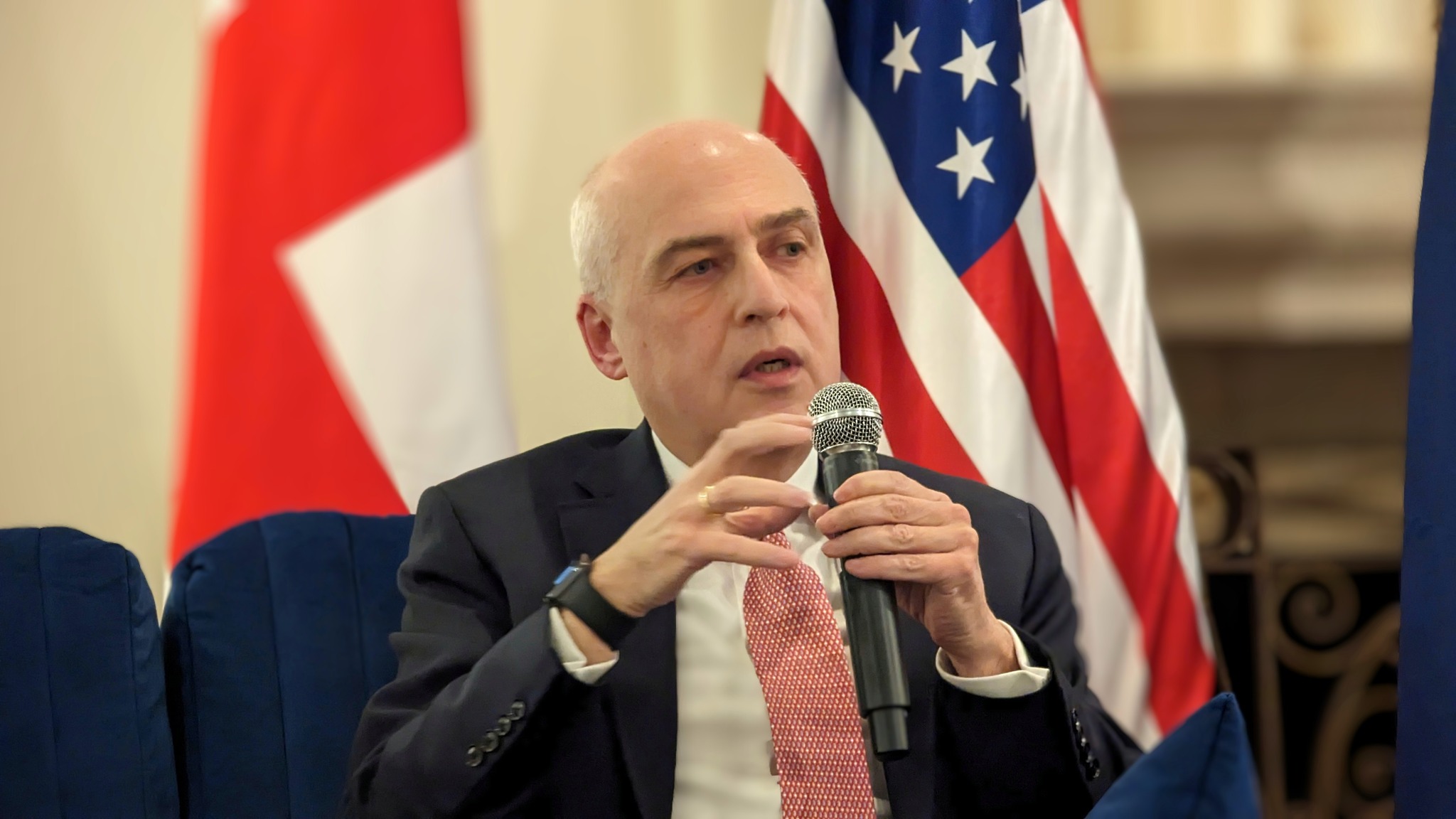The ambitious Black Sea submarine electric cable project is going full steam ahead following Georgia, Hungary, Romania, and Azerbaijan coming to an agreement on its construction. The project is fully supported by the EU Commission and is one of the bloc’s five flagship projects and is set to transform Europe’s energy environment to become more secure and clean.
To celebrate the launch of the Black Sea submarine electric cable project, the Embassy of Georgia in the U.S.—with the support of the American-Georgian Business Council (AGBC) and the Levan Mikeladze Foundation—hosted a panel discussion featuring remarks from the embassy representatives of all participating countries, including Georgian Ambassador David Zalkaliani, Azerbaijani Ambassador Khazar Ibrahim, Hungarian Chargé d’affaires Pal Peter Schmitt, and Romanian Deputy Chief of Mission Cristian Gaginsky. U.S. State Department Office Director for Energy Diplomacy Seneca Johnson also gave an introduction at the event where she discussed U.S. policies to encourage such projects.

The initial concept was based on Georgia’s interest in boosting its economic integration with the bloc, as well as the potential to export hydro energy to Europe. With the initiative given the green light in Bucharest, the Black Sea Submarine Cable project will soon connect the South Caucasus region directly to South-East Europe via the world’s longest and deepest submarine electric cable. The submarine cable will further be equipped with a fiber-optic cable, which will provide high-quality internet connection between Romania and Georgia at no extra cost.
The aim of the project is two-fold: shore up the energy security of Europe to lessen malign Russian oil dependency and contribute to the EU’s clean energy transition.
Russia’s unprovoked and unjustified aggression in Ukraine has made Europe’s access to reliable energy sources paramount for its security. Georgia and its partners have moved to fill this security gap to replace Russian oil with a reliable, clean alternative.
The submarine cable initiative will also contribute to peace and prosperity in the South Caucasus, where the increased prosperity that the cable will bring to the region will complement platforms like Prime Minister Garibashvili’s “peaceful neighborhood initiative”, fostering the interconnection and dialogue needed to achieve good and sustainable relations.
The project will further ensure Europe’s access to clean energy through the creation of transit opportunities/back-to-back trade options for green renewable energy between the EU and the South Caucasus region—which will ensure energy provided through the project contributes to Europe’s transition to renewable energy.
This initiative—while ambitious and significant—is only a first step in harnessing the region’s green energy potential. Further U.S. and EU engagement will be needed to continue to drive this clean energy production trend upwards and make the Black Sea power line the project of the century.
Given the ever-growing importance of diversifying and expanding Europe-Asia trade routes, the Middle Corridor is emerging as the prime area of interest for policymakers and businesses. It is imperative that the EU and our Western partners continue to support regional efforts like the Black Sea undersea energy cable to further contribute to the prosperity and stability of the region, which will in turn provide huge dividends for our region, Europe, and the whole of the Euro-Atlantic community.

